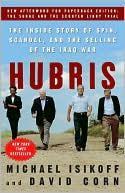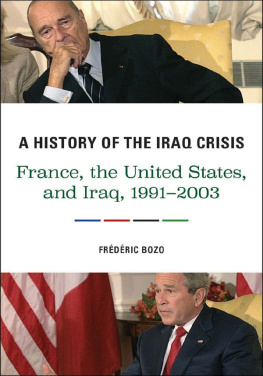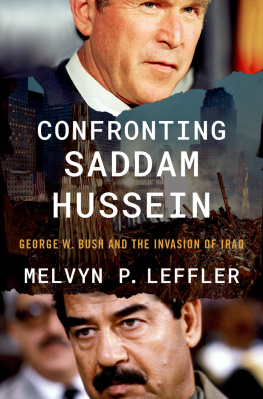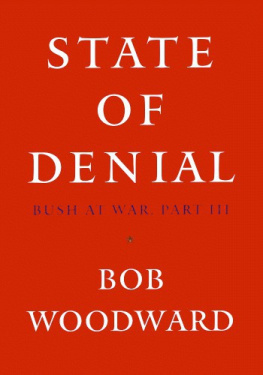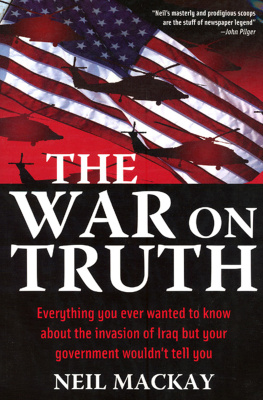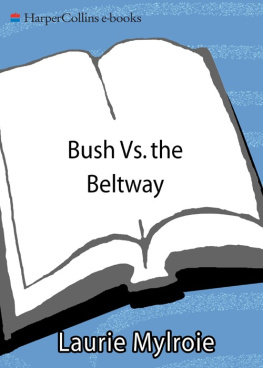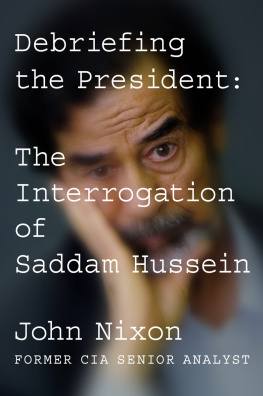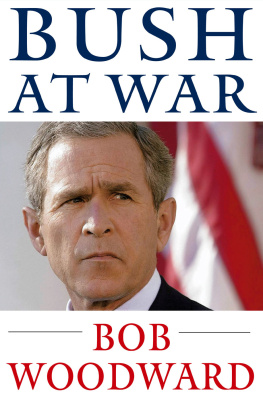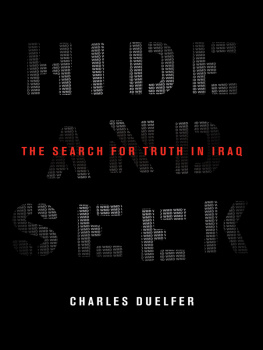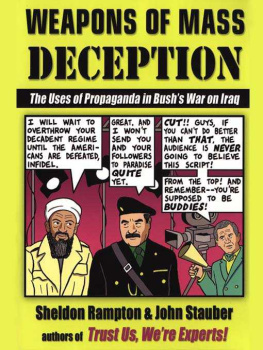CONTENTS
COVER PAGE
TITLE PAGE
DEDICATION
EPIGRAPH
CHARACTER LIST
Introduction
1. A Warning at the White House
2. The New Product
3. A Speech and a Spy at the United Nations
4. One Strange Theory
5. The Niger Caper
6. The Secret Diggers
7. A Tale of Two Sources
8. Bent with the Wind
9. A Secret in the Nevada Desert
10. The Final Pitch
11. Best-Laid Plans
12. The Missing Weapons
13. The Leaking Begins
14. Seven Days in July
15. A Cover Blown
16. The Incurious President
17. The Investigation Begins
18. The Prosecutor Versus the Press
19. The Final Showdown
Afterword: No Regrets
LIST OF ABBREVIATIONS
NOTES
ACKNOWLEDGMENTS
COPYRIGHT
For Trudy Isikoff and Willa
M.I.
For Welmoed, Maaike, and Amarins
D.C.
How is the world ruled and how do wars start? Diplomats tell lies to journalists and then believe what they read.
K ARL K RAUS ,
A USTRIAN JOURNALIST AND PRESS CRITIC
(18741936)
CHARACTER LIST
Im going to kick his sorry motherfucking ass all over the Mideast.
P RESIDENT G EORGE W. B USH
Introduction

E ARLY ON the afternoon of May 1, 2002, George W. Bush slipped out of the Oval Office, grabbed a tennis racquet, and headed to the South Lawn. He had a few spare moments for one of his recreational pleasures: whacking tennis balls to his dogs, Spot and Barney. It was a pleasant spring day in Washington and not an especially taxing one for the president. He had no pressing political worries. Having routed the Taliban regime in Afghanistan the previous fall, Bush was standing tall in the polls, with an approval rating hovering at 70 percent. That morning, there had been his usual terrorism briefings, then meetings with congressional leaders where Bush had talked about moving forward his domestic proposals, including a measure promoting faith-based social programs. Later in the day, the president was due to meet the vice president of China. Bush also had an unusual press interview on his schedule that afternoon. As he hit the balls and watched the dogs scamper, Bush prepared for that session with two press aides by reviewing questions he would likely be asked about one of his predecessors he admired most: Ronald Reagan.
Ever since September 11, 2001, Bush had increasingly identified with Reagan: his optimism, his firm convictions, his stark, uncompromising stand against Soviet communism. Bush had come to consider Reagans battle against the Soviet Union a parallel of his own struggle against Islamic extremism. The Evil Empire was now the Axis of Evilthat trio of tyrannies, Iraq, Iran, and North Korea, that Bush had proclaimed the nations foes months earlier during his first State of the Union speech.
Frank Sesno, the veteran newscaster, was due shortly at the White House to query Bush about Reagan and the parallels between his presidency and Bushs. The interview was for a History Channel special that would air upon the death of the former president, who was ninety-one years old and suffering from advanced Alzheimers disease. On a two-page pre-brief memo prepared by his staff and containing questions that might be asked, Bush had written out by hand points he wanted to emphasize. The presidential scribbles, his aides thought, were revealingperhaps a window onto Bushs view of himself. Optimism and strength, Bush had scrawled on top of the memo. Also, decisive and faith. Next to a question about Reagans direct, blunt style, Bush had written, moral clarity. He had drawn an arrow next to the word forceful. Alongside a question about the 1983 suicide bombing attack on the U.S. Marines barracks in Lebanon (which killed 241 American troops) and how a president copes with such losses, Bush had written, There will be casualties.
On the South Lawn, Press Secretary Ari Fleischer and another member of the communications staff, a burly, irrepressible former television producer named Adam Levine, reviewed these points with Bush. Then they all moved inside and headed upstairs to the Red Room so Bush could have makeup applied for the interview. Bush casually asked Fleischer how his day had been going and what the talk in the pressroom was. Fleischer mentioned Helen Thomas, the longtime correspondent then writing for Hearst News Service. She was a gadfly and constantly giving Fleischer a tough time about an issue much in the news: Iraq. Bush and other administration officials had been decrying Saddam Hussein, the dictator of Iraq, as a threat to the United States and the world. To many, it sounded like war talk. The media were filled with speculation that the White House was preparing for an invasion. But Bush had steadfastly refused to state his intentions. His aides repeatedly claimed that Bush had reached no decisions. Interviewed by a British broadcaster a few weeks earlier, Bush had resorted to a Clintonesque evasion: I have no plans to attack on my desk.
At that days daily press briefing, Thomas had peppered Fleischer with questions about Iraq. Referring to stories in the media about secret plans for military action, she asked, What is the presidents rationale for invading Iraq? What made Saddam different from other dictators and worth an invasion? Fleischer bantered with Thomas and pointed out that regime change in Iraq had been the official policy of the U.S. government since President Bill Clinton signed the Iraq Liberation Act in 1998. Thomas shot back: Did the law mandate that the United States overthrow the Iraqi government by force? Bush, Fleischer said, believes that the people of Iraq, as well as the region, will be more peaceful, better off without Saddam Hussein. Thomas retorted, Thats not a reason to go to war. Well, Helen, Fleischer replied, if you were the president, you could have vetoed the law. The reporters chuckled, and Fleischer called on another journalist.
As Fleischer recounted this exchange for the president, Bushs mood changed, according to Levine. He grew grim and determinedsteely. Out of nowhere, he unleashed a string of expletives.
Did you tell her I dont like motherfuckers who gas their own people? the president snapped.
Did you tell her I dont like assholes who lie to the world?
Did you tell her Im going to kick his sorry motherfucking ass all over the Mideast?
Fleischer paused. I told her half of that, he replied. Bush laughed, as did his aides. Still, Bushs visceral reaction was telling. This wasnt bluster; this was real. The president had meant what he saidevery word of it. This was the Bush that Levine admired. You know where were going here, Levine thought.
T HE vice presidents limousine sped through downtown Washington and headed over the Potomac River on its way to Langley, Virginia. It was days after Bushs outburst, and Dick Cheney was making another of his visits to CIA headquarters. These tripsunknown to the public at this pointhad become the talk of the intelligence community. Cheney would arrive at agency headquarters and park himself in Director George Tenets seventh-floor conference room. Then officers and analysts would be summoned to brief himon Iraq and other mattersand often encounter a withering interrogation. How do we know this? What more do you have on that? What have you done to follow up? Cheney was proper and respectful. His questions were delivered in his soft, low, monotone voice, his arms folded. Still, they had an intimidating impact on his briefers. Ive seen him shake people, said John Maguire, an Iraq covert operations officer who often attended the Cheney briefings. He would drill in on substantive details. If he asked you something that you didnt know, you better have an answer the next time you saw him. He would say, I want answers on this. This is not acceptable. The worst thing to do with Cheney was to hedge or to waffle. Hed say, Make a call, Maguire recalled. He didnt want to hear sentences that began, We dont know.

